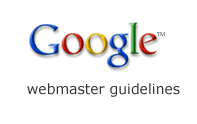How Important are Links?
Link profiles are a big part of Google and Bing’s formula for deciding how relevant your site is to its searchers. Sites linking to you can have either a positive or negative effect on your site and its ranking. Quality relevant sites linking to you help bolster your relevance and authority, while thin low quality sites can drag you down. In any natural link profile you will find a wide variety of sites linking into your site and over time this number will vary and grow depending on your industry and popularity.
What kind of link is an affiliate link to your site? Google does not directly address this in their guidelines, however in the strictest interpretation of their definition of links, affiliate links could be defined as “unnatural” and “Paid Links” according to the guidelines.
Google has become increasingly vigilant about link manipulation or unnatural links- where websites owners are buying links to improve their link profiles and manipulate their ranking artificially. In the past year, Google has brought the hammer down on link exchanges, blog linking networks, Advertorials, guest blogging networks and paid text links that are intended to skew link profiles. Sites involved in this kind of activity were penalized and in some cases removed from Google’s index.
Affiliate Links and Merchants
So the question is what kind of impact does an affiliate linking to you have on your site and what are the best practices for having affiliates link to you? Google is aware of the major affiliate networks and attempts to handle affiliate links appropriately by not giving any real influence or endorsement to them. Thus, inbound affiliate links should not have any real impact on a site’s link profile.
You should also know that the affiliate networks already have a Disallow command in place on their site’s robots.txt file. What this means is that no search engine robot is supposed to index or follow the affiliate link to the merchants site or give it any value. An example would be a ShareASale link which looks like this:
http://www.shareasale.com/r.cfm?B=112233&U=12345&M=1234&urllink=
If you take a look at the robots.txt file at ShareASale.com you will notice that it includes a disallow command for anything that has the /r.cfm in the URL.
Disallow: /r.cfm
This should put your mind at ease as a merchant. Affiliate program links through the major networks cannot influence your SEO in a negative manner as the links do not get indexed past the network and cannot pass any value one way or another. There is no reason to demand that all affiliates use a nofollow attribute in their links as it really does not affect your site.
What Affiliates Should Do

For affiliates it is important to know how your own site and links are being perceived. Below you will find an excerpt from Matt Cutts, the Head of Webspam Engineering at Google on how “paid links” or ”paid relationships” should be disclosed to Google:
Google would like affiliates to follow suggested best practices disclosing all paid relationships by using a rel=nofollow attribute on affiliate links and the failure to do so may negatively impact the affiliate’s website.
Share


Thanks for this article. I didn’t know about the “built-in” no-follow or disallow passed via robots.txt to affiliate links. Interesting.
very informative article i have learned more about disallow on the affiliate links url and that has a positive impact on how i viewed the affiliate links